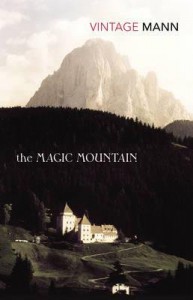philoSophie
History, Theatre, Greek and Russian literature, Godard, Angelopoulos and Bergman's movies
Modern Greek philology student. | Kiss me in the rain but also revolt against the aristocratic social and political norms of the Age of Enlightenment |https://instagram.com/ph1losophie/ |https://thesuspendedstep.wordpress.com
My goal in life is to read everything Dostoyevsky has ever written.
My goal in life is to read everything Dostoyevsky has ever written.
The Magic Mountain
 A Bildungsroman, or novel of initiation, as noted by Thomas Mann himself, concisely written and challenging. Mann spends the first book setting the backdrop and then focuses gradually more and more on his characters; on the way that each of them thinks and acts, thus creating fleshed out personalities.
A Bildungsroman, or novel of initiation, as noted by Thomas Mann himself, concisely written and challenging. Mann spends the first book setting the backdrop and then focuses gradually more and more on his characters; on the way that each of them thinks and acts, thus creating fleshed out personalities.Our main protagonist is Hans Castorp, whose psychological and intellectual growth we follow during his 7 year stay in the sanatorium. His representation of the mediocre German bourgeois is confronted with a plethora of conflicting ideologies, Settembrini’s humanism and positive outlook on life, Naphta’s radicalism, Claudia Chauchat’s erotic temptation, Peeperkorn’s Dionysian principle, and, lastly, the ideal of duty and loyalty, which is reflected by his cousin Joachim.
With frequent use of the leitmotiv and exceptional passages on ideological (metaphysical, political, philosophical, pedagogical and religious) reflections, Mann manages to create a feverish atmosphere, intensified by the vivid descriptions of the landscape surrounding the sanatorium.
A purely modernist novel, with futuristic residues, in the sense that the scientific discoveries of the time are exalted (e.g. the X-ray machine).
Goethe had described Faust as a very serious jest and this expression fits perfectly both the writing style of Thomas Mann and the structure of the Magic Mountain.








